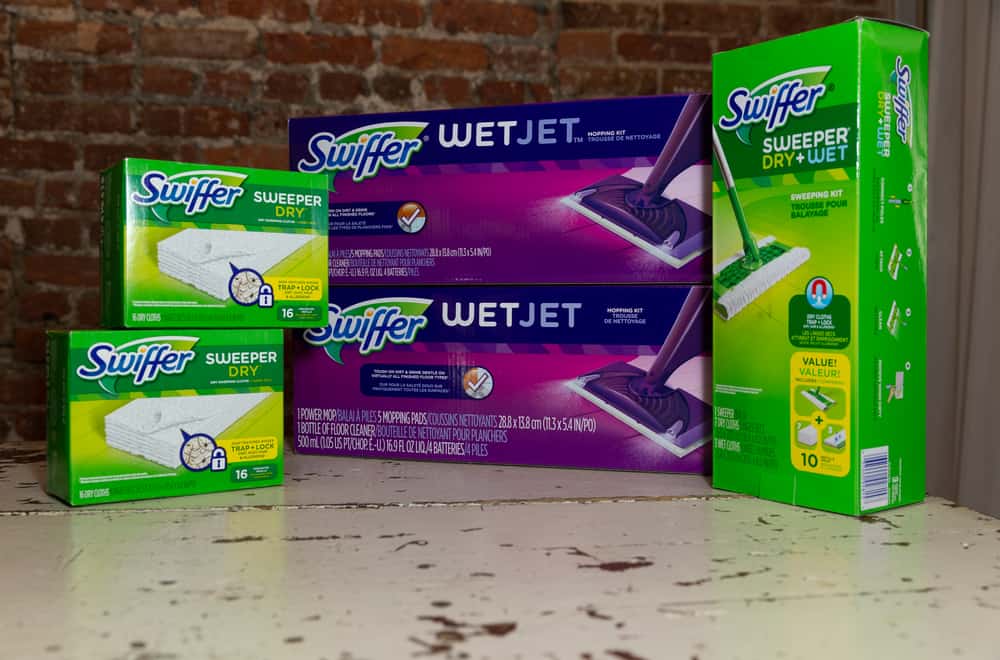As a proud homeowner, I take great pride in keeping my floors sparkling clean. But with a busy schedule, I’m always searching for quick and efficient cleaning solutions. Recently, I was wondering if I could use my trusty Swiffer WetJet on my vinyl floors. After all, it’s a popular choice for cleaning hardwood, so surely it would be safe for vinyl too, right? As I started to research, I discovered a whole world of information about vinyl floor cleaning and learned that using the wrong cleaning products can actually harm your floors.

Image: www.whatisvinyl.com
So, can you really use a Swiffer WetJet on vinyl floors? The answer is not as simple as a quick yes or no. While some cases it may be okay, there are several factors to consider before you reach for your Swiffer. Let’s dive into the details and learn how to keep those vinyl floors looking their best.
Understanding Vinyl Floors and Cleaning Solutions
Vinyl flooring provides a durable and attractive alternative to hardwood, tile, and other flooring options. But like any flooring type, vinyl requires the right care to maintain its beauty and longevity. The key to successful vinyl floor cleaning is to choose products specifically designed for this surface. Vinegar, lemon juice, and other acidic cleaners are a no-go since they can dull your floors’ shine and damage the finish over time.
Swiffer WetJet cleaning solutions, while generally safe for hardwood floors, are not specifically designed for vinyl. Many of its formulations contain harsh chemicals that may strip away the protective coating on vinyl floors, leading to discoloration or damage. Also, the pads themselves may not be suitable for vinyl, potentially scratching the surface.
Vinyl Floor Care: Best Practices and Tips
Cleaning Safely: Alternatives to Swiffer WetJet
When it comes to cleaning vinyl floors, there are safer and more effective options than the Swiffer WetJet. Consider the following:
- Use a specialized vinyl floor cleaner: Look for cleaners specifically formulated for vinyl floors that are pH-neutral and free of harsh chemicals. Many brands offer excellent vinyl floor cleaners that are safe, effective, and leave your floors sparkling.
- Microfiber mops: Microfiber mops are highly effective at picking up dirt and grime, and they won’t scratch your vinyl floors. Combining them with a mild cleaning solution will give you a thorough clean without the risk of damaging your floors.
- Diluted dish soap: A small amount of mild dish soap mixed with water can be a simple and effective cleaning solution for vinyl floors. Make sure to use a very small amount and rinse thoroughly to avoid streaks.

Image: gorilla-rooms.com
Maintenance Tips for Your Vinyl Floors
Beyond cleaning, there are preventive steps you can take to keep your vinyl floors looking their best:
- Sweep or vacuum regularly: This simple step helps to remove loose dirt and debris before it has a chance to scratch the surface of your floors.
- Place mats at doorways: Entryway mats help trap dirt and moisture from shoes, preventing them from spreading across your floor.
- Use furniture pads: Protect your floor from scratches by placing felt pads beneath furniture legs.
- Avoid harsh chemicals: Stick to cleaners specifically designed for vinyl floors, and avoid using abrasive cleaners or polishers on your floor.
Understanding Vinyl Floor Finishes
Vinyl floors often have a protective layer, known as a finish, that helps to resist scratches, stains, and wear. Understanding your floor’s finish can help you make informed cleaning choices. Here are some common types of vinyl floor finishes:
- Polyethylene: This is a common type of finish that is relatively resistant to scratches and stains.
- Polyurethane: This is a more durable finish that offers excellent protection against scratches and stains.
- Epoxy: This is the most durable type of finish, providing excellent protection against wear, scratches, and stains.
FAQs About Cleaning Vinyl Floors
Here are some common questions about cleaning vinyl floors:
Can I Use Vinegar on My Vinyl Floors?
Vinegar is an acidic cleaner that can damage the finish of vinyl floors. Using vinegar on your vinyl floors could lead to dulling and discoloration over time. Stick to cleaners specifically designed for vinyl floors, which are pH-neutral and safe for your floor’s finish.
Should I Use Polish on My Vinyl Floors?
It’s generally best to avoid using polish on vinyl floors. While some polishes may be safe for specific types of vinyl, others can leave a sticky residue or damage the finish. Consult the manufacturer’s recommendations for your specific flooring type.
How Often Should I Clean My Vinyl Floors?
Sweep or vacuum your vinyl floors daily to remove dirt and debris. Mopping should be done weekly, or more often if needed, depending on traffic levels and foot traffic.
What About Stains on Vinyl Floors?
For accidental spills and stains, use a cleaner specifically designed for vinyl floors and follow the manufacturer’s instructions.
Can Swiffer Wetjet Be Used On Vinyl Floors
Conclusion
While the Swiffer WetJet is a convenient cleaning tool for hardwood floors, it’s essential to choose the right cleaning products and methods for your vinyl floors. Sticking to cleaners specifically formulated for vinyl floors and following proper maintenance practices will help protect your investment and ensure your vinyl floors stay looking their best for years to come.
Do you have any other questions about caring for your vinyl floors or have any helpful tips to share? We’d love to hear your thoughts in the comments below!






